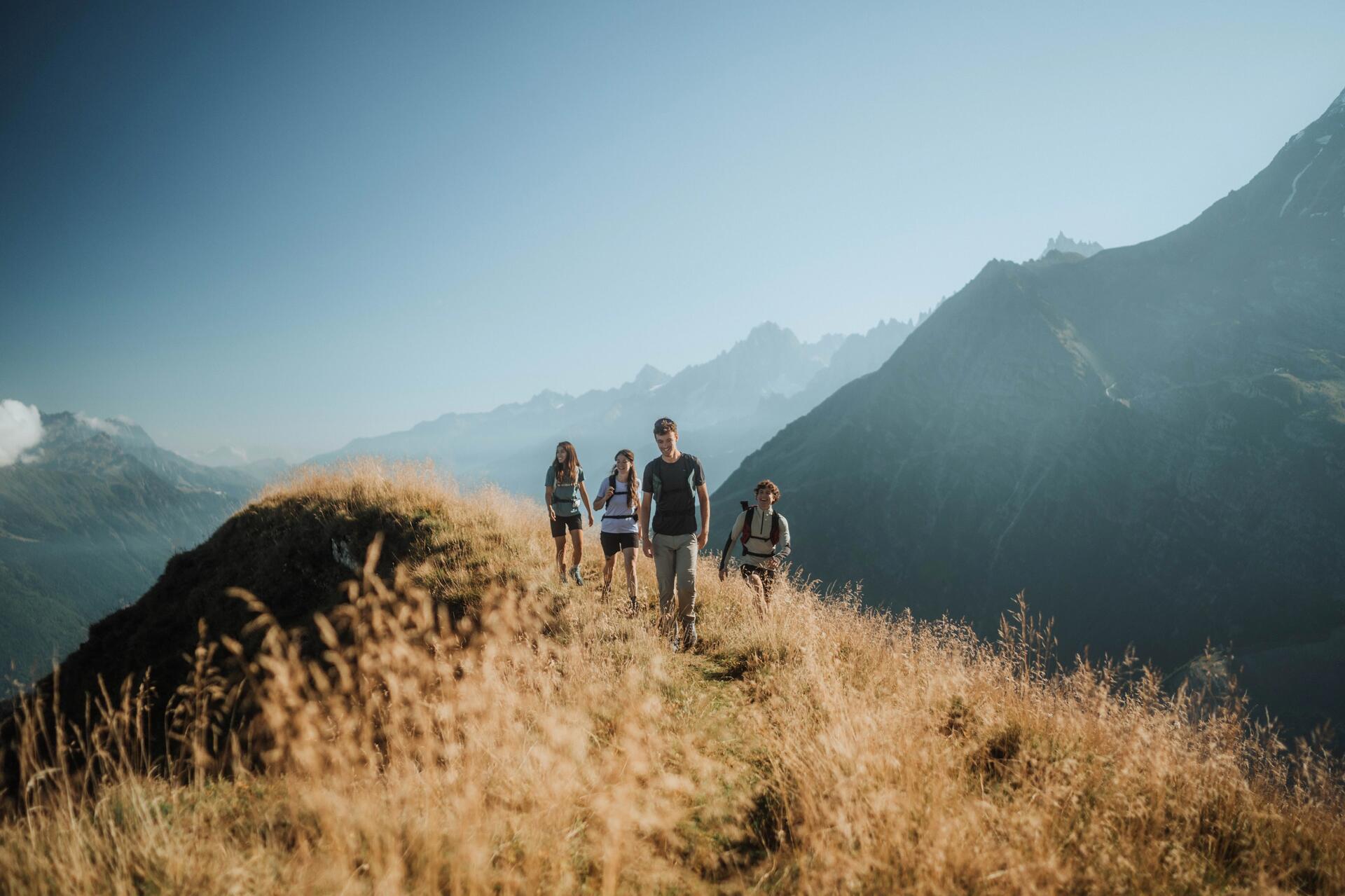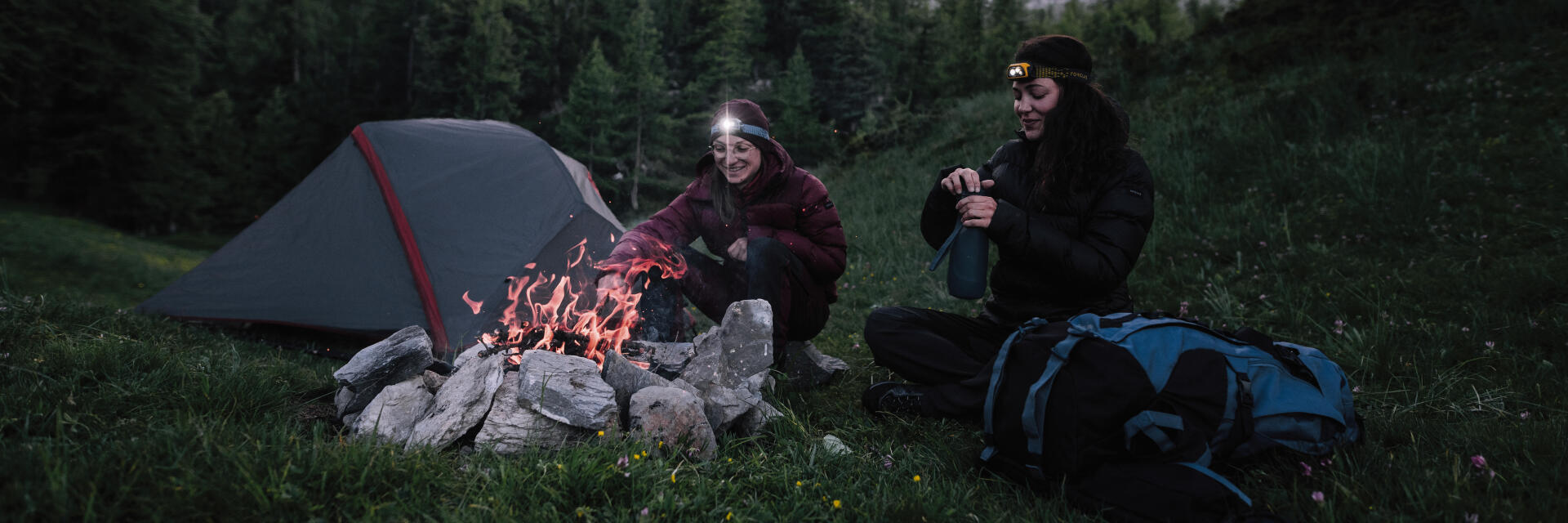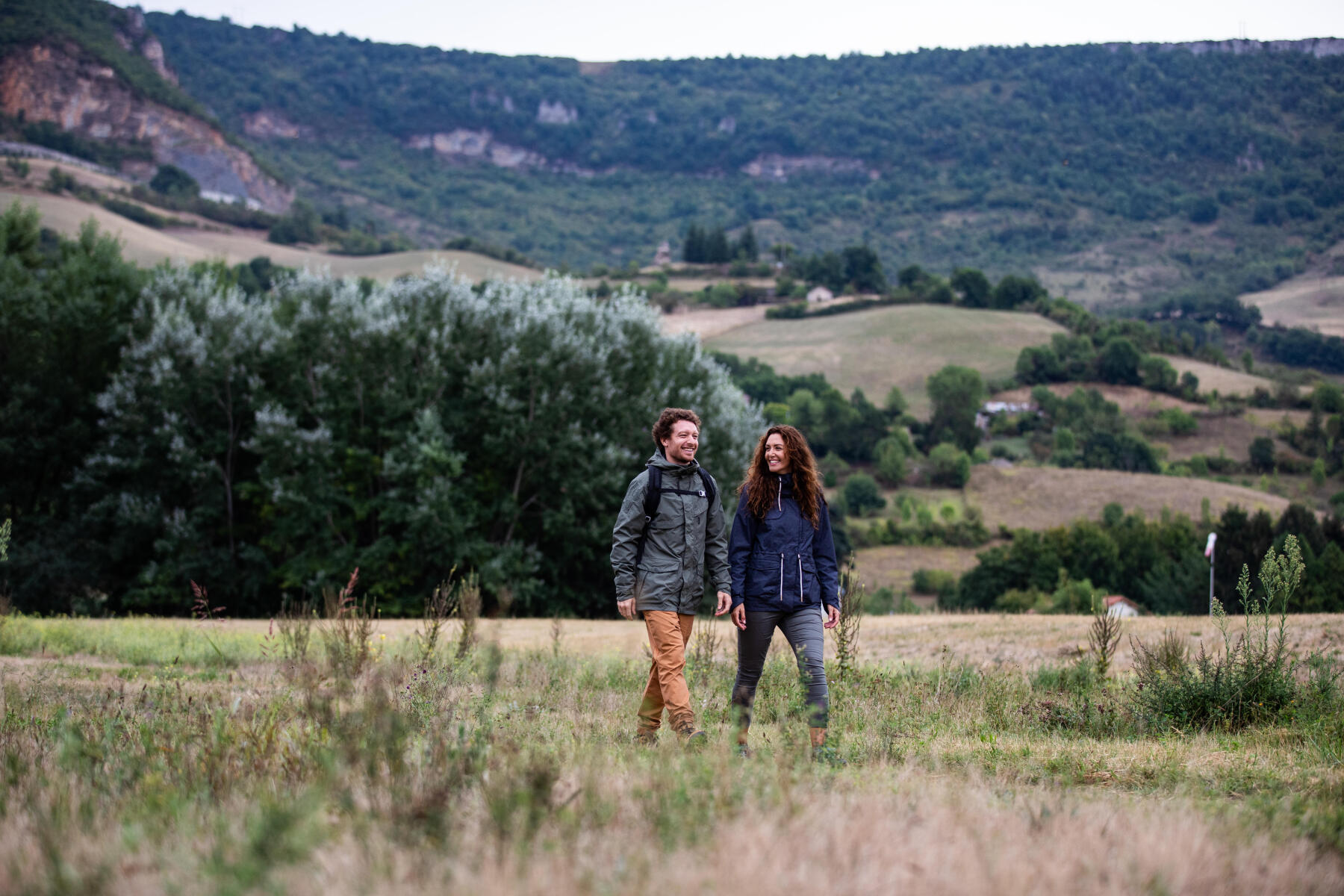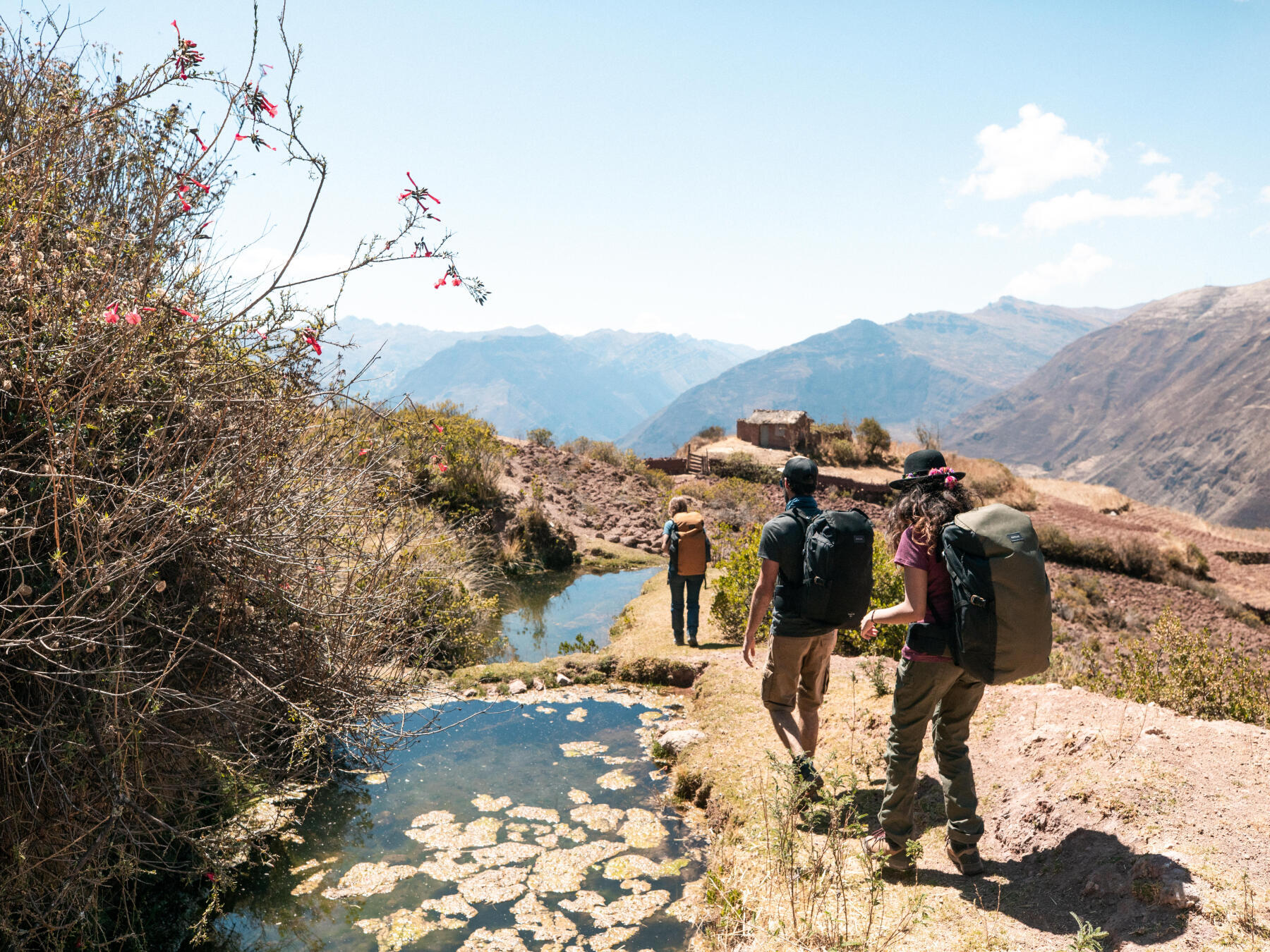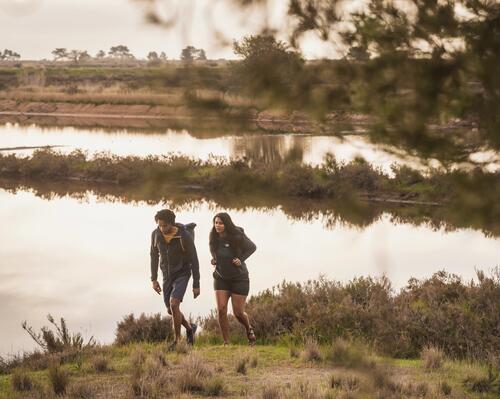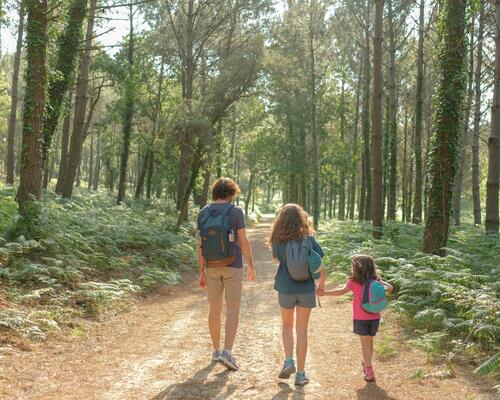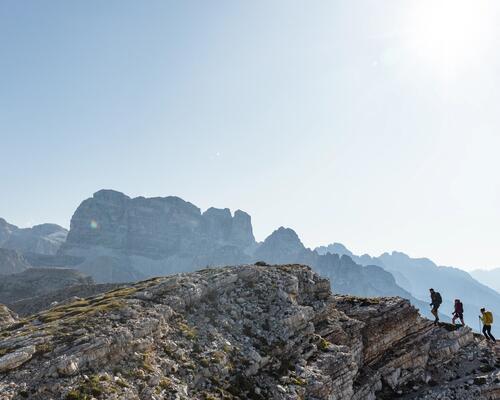1/ Stay on the hiking trails
There are many reasons why you might want to get off the beaten track but remember that, by staying on it, you avoid trampling on the different varieties of plants and help to preserve the land from premature erosion.
If you are passing through private property, remember to close the fences or barriers that you have opened to prevent the herds from escaping.
